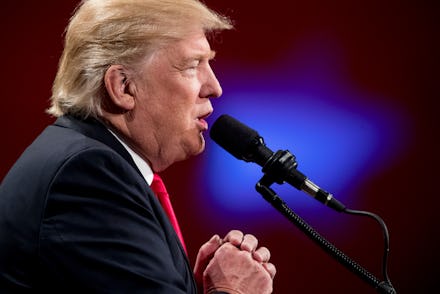Net neutrality debate takes center stage ahead of Trump presidency

One day it could cost you more money to watch a YouTube video than to check your email. That's what could happen if the United States ends net neutrality.
Proponents of net neutrality — which prevents internet providers from blocking content, intentionally slowing load times for certain websites or charging extra for bandwidth "fast lanes" — argue that the abolition of net neutrality will lead to a degraded quality of broadband service, increased internet bills and major conflicts of interest throughout service-providing corporations like Verizon or Comcast.
Fear reignited
The debate over net neutrality flared up again following the appointment of Jeff Eisenach and Mark Jamison to Trump's Federal Communications Commission landing team. Both are staunch opponents of net neutrality.
Supporters of open internet have even more reason to panic following FCC member Ajit Pai's recent comments regarding Trump's vision. "I do believe that [net neutrality's] days are numbered," Pai said on Wednesday. "Today, I am more confident than ever that this prediction will come true.
"And I'm hopeful that beginning next year, our general regulatory approach will be a more sober one that is guided by evidence, sound economic analysis and a good dose of humility," Pai continued.
"I think the big, open question is what happens to the net neutrality rules proper," Doug Brake, a telecommunications policy analyst at Information Technology and Innovation Foundation, told Mic. "It's really important to separate out those rules regarding blocking or slowing of traffic from jurisdictional questions."
The problem with Title II
"So much of the controversy comes from the jurisdictional hook the FCC used to implement net neutrality rules," Brake continued. He's talking about the FCC's classification of broadband as a telecommunications service under Title II, also known as the Communications Act.
Those opposed to the FCC's regulations argue that Title II is outdated in the context of internet service. The Communications Act established the FCC, which federally regulates communications technology — but it was written in 1934, when telephone and radio were the dominant methods of correspondence. It has only received one comprehensive amendment, which came under Bill Clinton in 1996.
"Title II wasn't really written with broadband in mind, and the technology has changed so much that it's widely recognized that this is not an ideal situation," said Brake. "We're nonpartisan and try to aim down the middle, and we're in agreement that Title II is not way to go about this."
Brake believes Trump's appointees — Eisenach, Jamison and Rosyln Layton, a visiting fellow at the American Enterprise Institute — will make it their objective to challenge the previous FCC net neutrality regulations.
"I think it's very fair to say Title II is going away — specifically broadband, which will no longer be classified as a telecommunications service." This would, in theory, allow Republicans to dismantle the FCC's net neutrality rules, opening the door for major service provider corporations to dictate the terms of the internet.
While Brake and ITIF are not in favor of net neutrality, he is wary of Republicans' agenda under Trump going forward. "I worry that Republicans will come in and totally gut the regulations and kick everything to the FCC with no actual rules in place. We run the risk of ping-ponging from one extreme to the other and having every administration put that up for debate every four years"
Trump's appointments and past comments suggest he has a strong inclination to challenge net neutrality throughout his administration. It's a platform that, Brake suspects, will carry over throughout his time in office.
"As far as telecommunications policy, this issue is going to be front and center for sure."